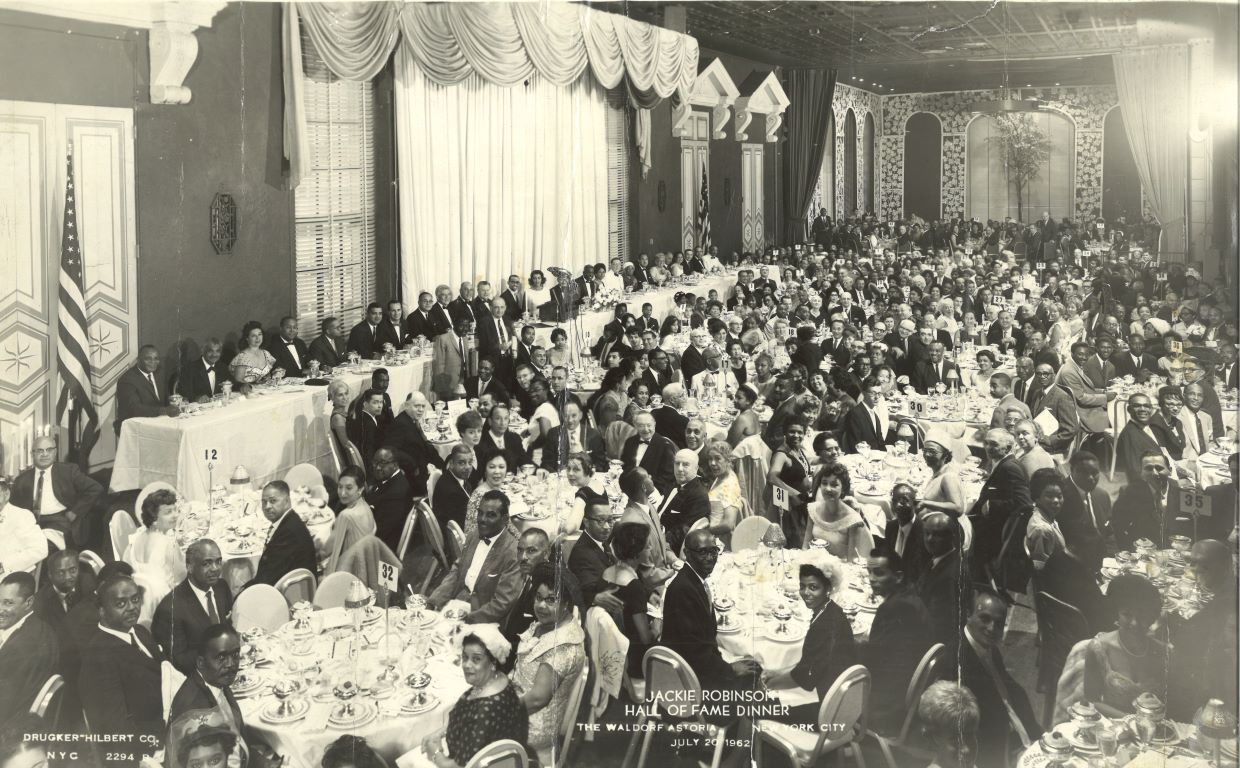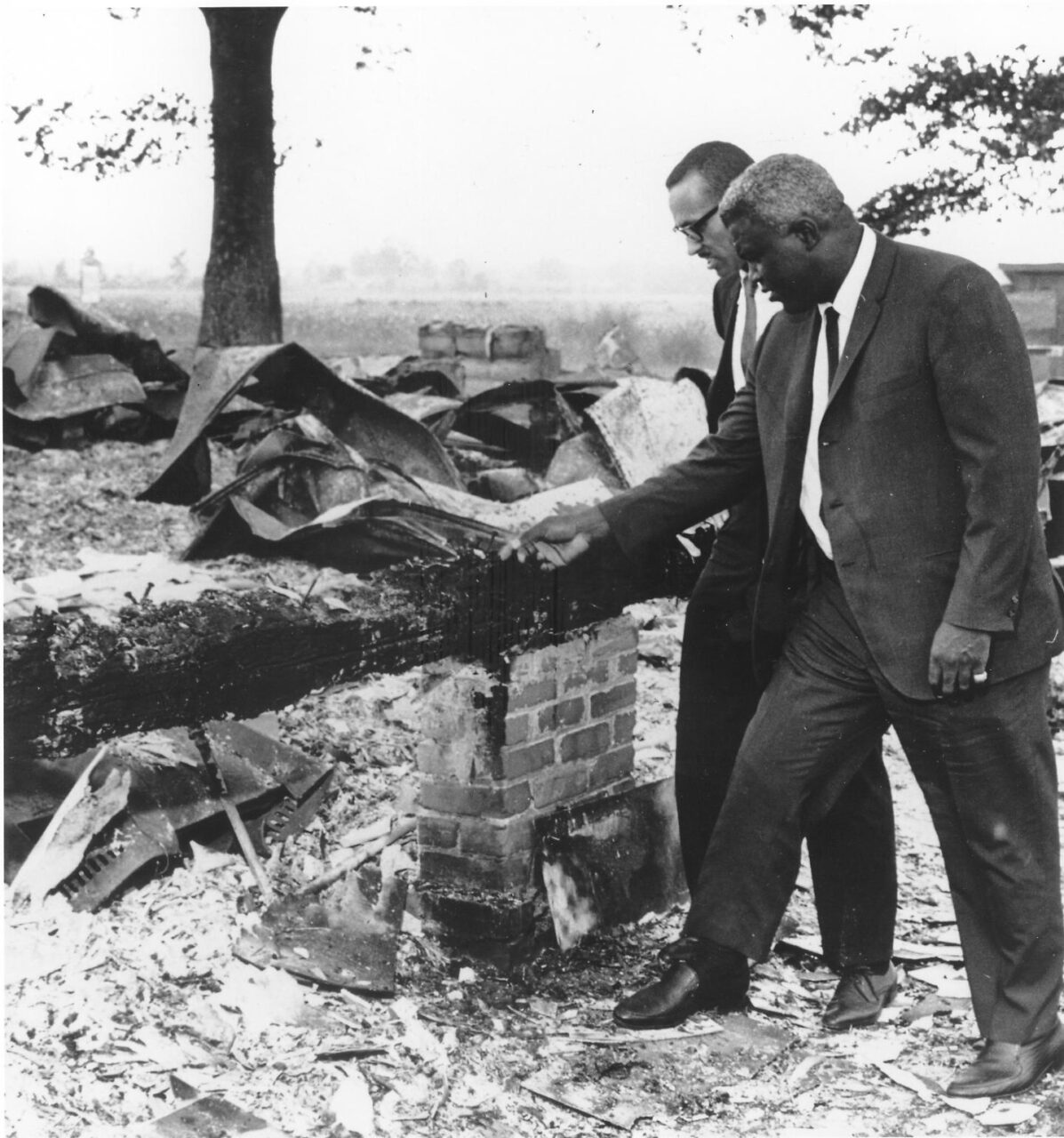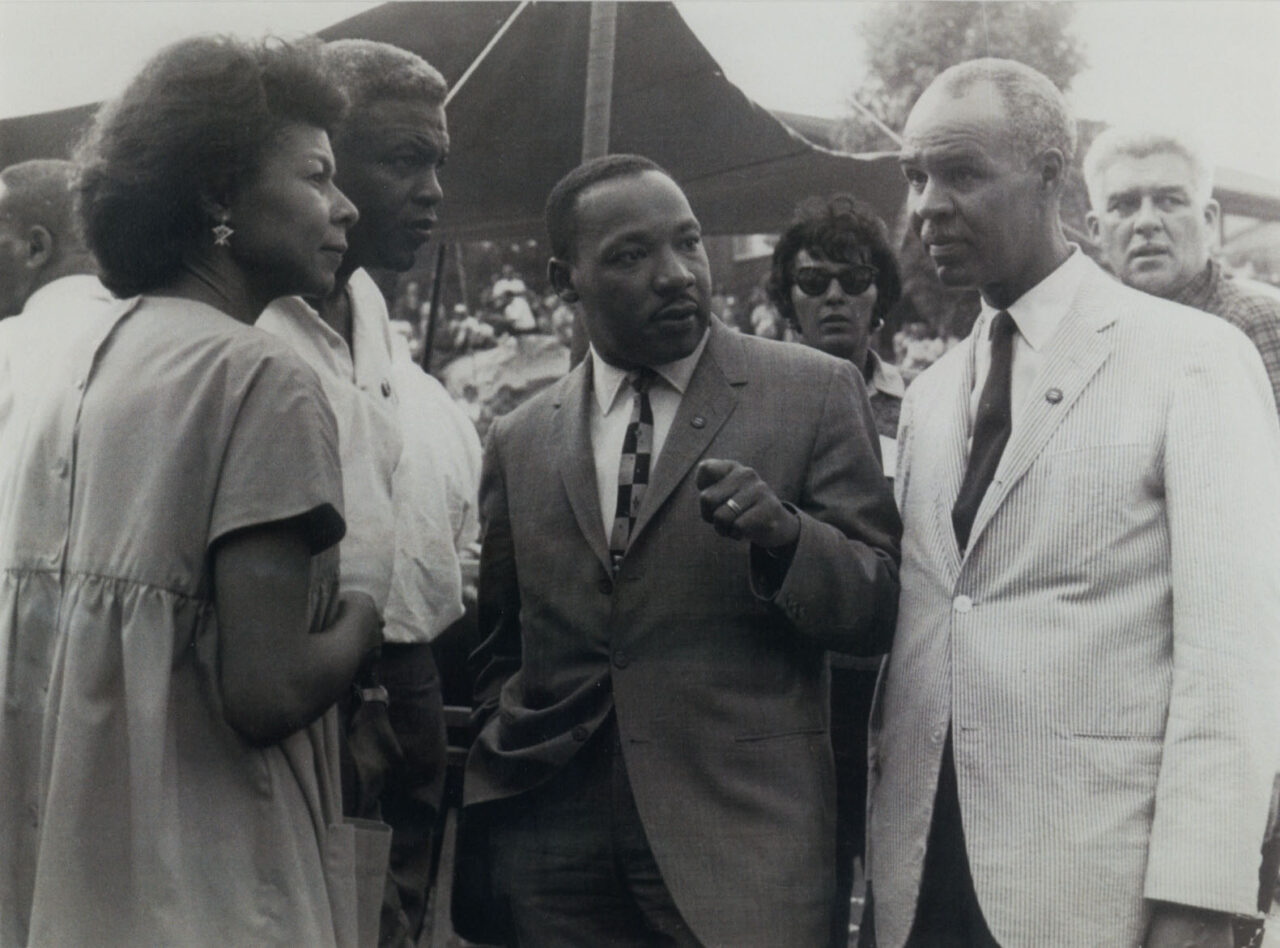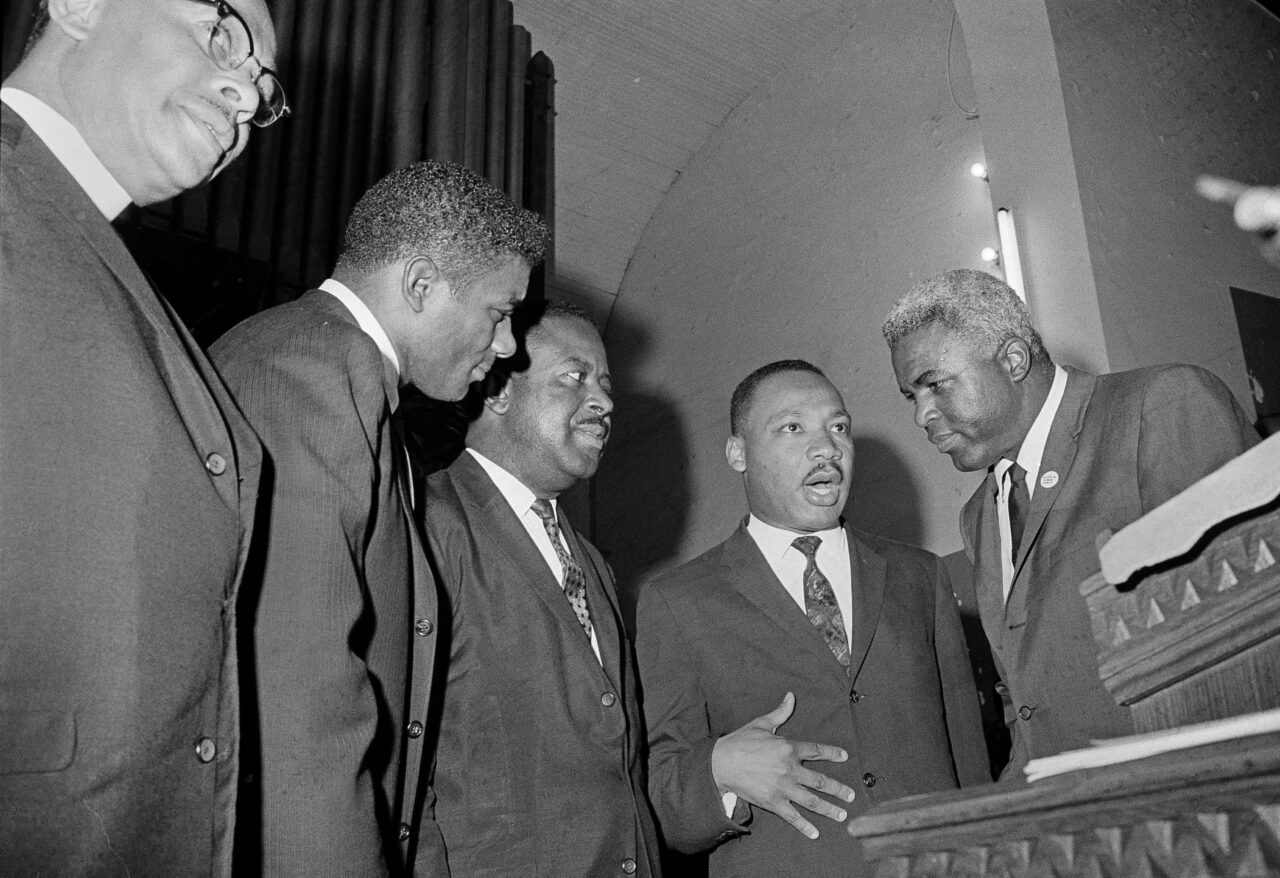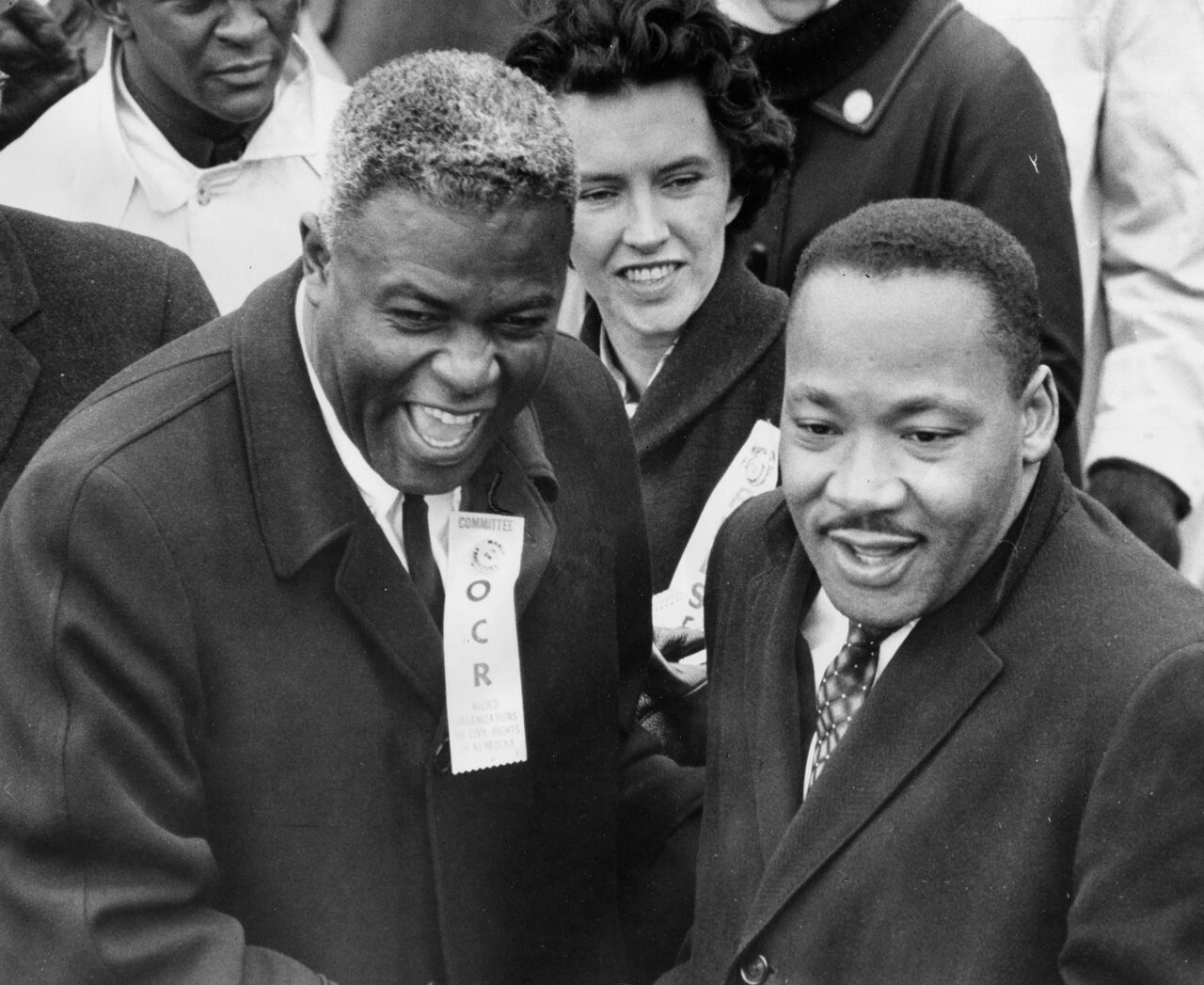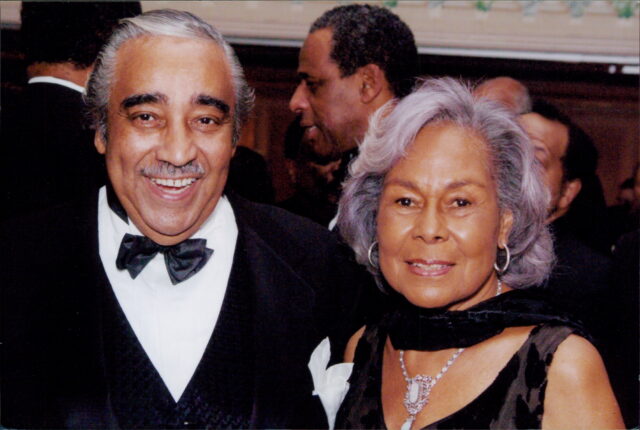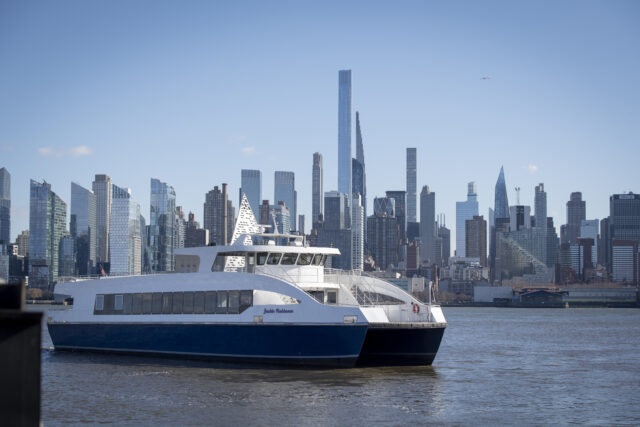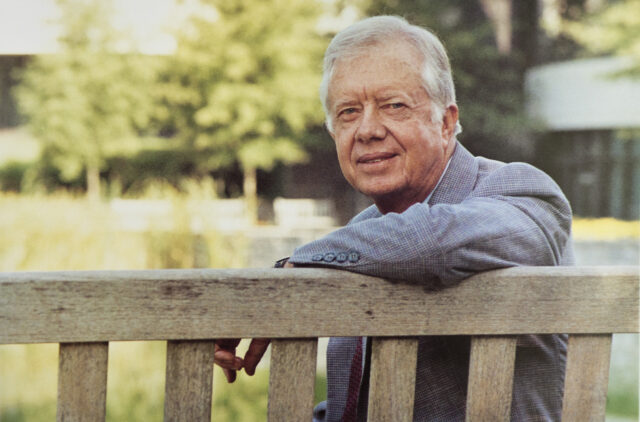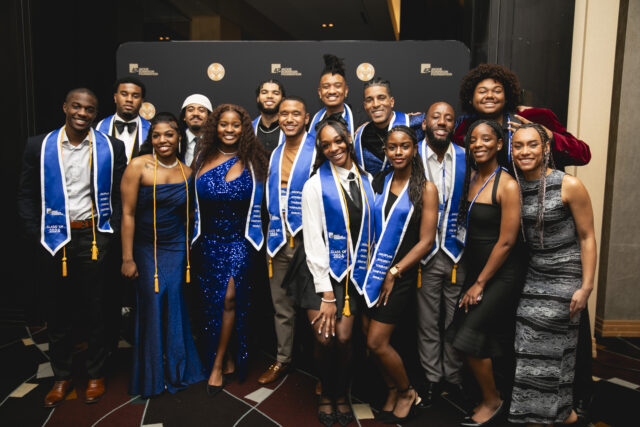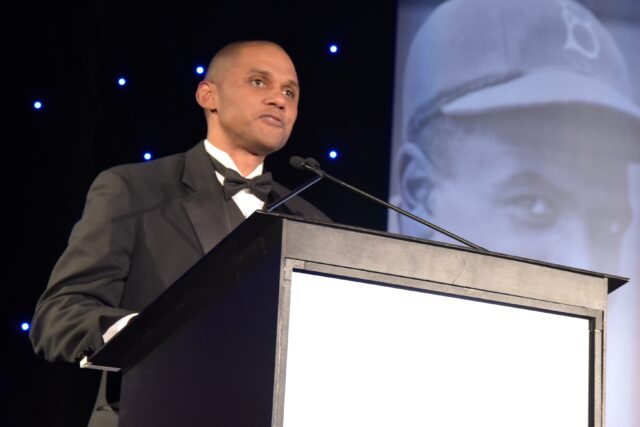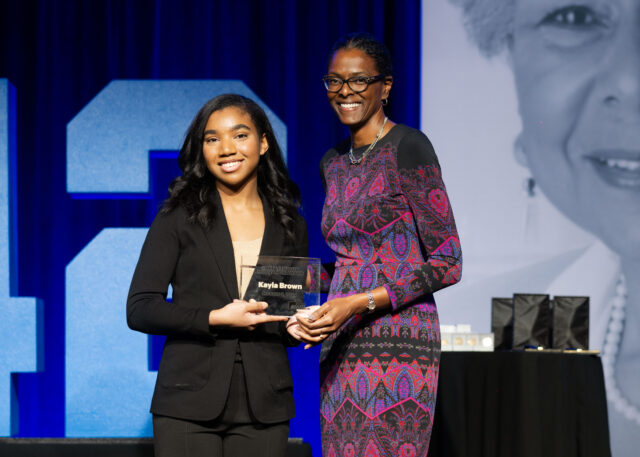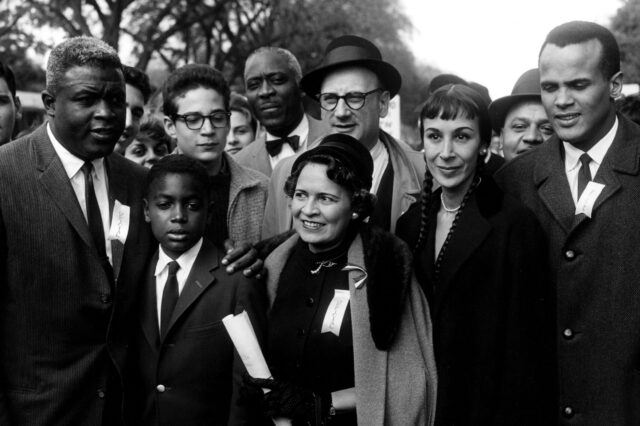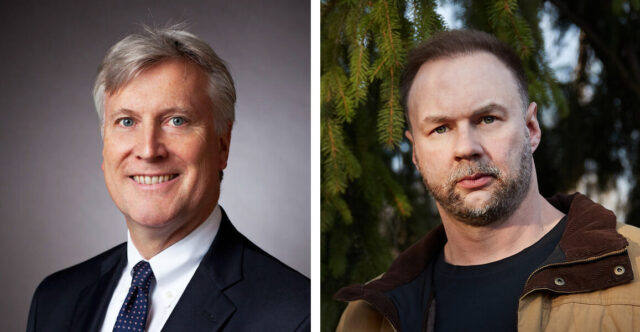Allies in Justice: Robinson and King
Throughout the 1960s, Jackie Robinson and the Rev. Dr. Martin Luther King Jr. maintained a close friendship that was bound by their shared commitment to the Civil Rights Movement. Beginning in 1962 and ending with King’s assassination, the men collaborated as activists and organizers advancing the fight for political and economic equality for Black Americans.
Robinson’s closest collaboration with Dr. King began in 1962, though the two had corresponded for many years prior. When Robinson was inducted into baseball’s Hall of Fame, the Southern Christian Leadership Conference (SCLC), King’s grassroots activist organization, held a testimonial dinner at the Waldorf-Astoria in New York City in Robinson’s honor. Dignitaries such as New York Governor Nelson Rockefeller were in attendance, and Robinson was presented with a plaque by Wyatt Tee Walker, Executive Director of the SCLC and close ally of Martin Luther King. The dinner raised substantial funds to support the SCLC’s voting rights efforts, and it was key to strengthening the organization’s ties with Robinson’s celebrity power and the political connections it offered.
Despite the grandness of the occasion, King himself was unable to attend. He was in Albany, Georgia, where the Ku Klux Klan had burned three Black churches response to the SCLC’s involvement in voting rights efforts. Soon after the testimonial dinner, King implored Robinson to join him in Georgia to see the destruction for himself. When Robinson arrived, he spoke to parishioners and clergy and vowed that the churches would be rebuilt. Soon after, King tapped Robinson to lead the fundraiser to do so.
Robinson continued his work alongside King in 1963. On May 1st, the “Children’s Crusade,” a protest of youths marching against segregation in schools, was violently beaten back by Birmingham police. Ten days later, white supremacists bombed the home of Martin Luther King’s brother, and on May 13th, the Gaston Motel, which King used as his headquarters, was bombed in an assassination attempt. In response to this new wave of violence, Robinson launched the “Back Our Brothers” group, which brought together New Yorkers to raise money for King and his organizers. Soon after, Robinson returned to Birmingham accompanied by heavyweight boxer Floyd Patterson, to speak at a pair of rallies at the Sixth Street Baptist Church and Pilgrim Baptist Church. Robinson spoke alongside King and Rev. Ralph Abernathy, criticizing President Kennedy for not sending the National Guard to defend the young protestors.
Robinson’s work with King continued through the summer. He hosted a Back Our Brothers fundraising dinner honoring King and other SCLC leaders. He attended the March on Washington in August, leading the Connecticut delegation, and hosted two jazz concert fundraisers for the SCLC’s efforts that year, one in June and one in September. The first raised over $15,000 for the SCLC. The second, which was a joint fundraiser for both the SCLC and the NAACP and was attended by both King and NAACP chairman Roy Wilkins.
In 1964, he traveled with King to Frankfort, Kentucky and St. Augustine, Florida to lead marches for desegregation in public accommodations. Shortly after his Florida visit, Robinson and King made one more stop in Georgia to view the progress on the rebuilt churches. By June, Robinson’s fundraising operation had been a success. He had raised over $50,000, and the churches were almost complete. All three still stand today.
Although Jackie Robinson was a civil rights leader in his own right, it is important to note, he was a follower as well. A man of immense fame and popularity, he deferred to movement organizers like Dr. King for guidance on how to maximize his impact as an admired leader, speaker, and fundraiser. Robinson embraced the idea that “a life is not important except in the impact it has on other lives.” His collaboration with Martin Luther King Jr., demonstrated his will to place his vision and beliefs into action.
